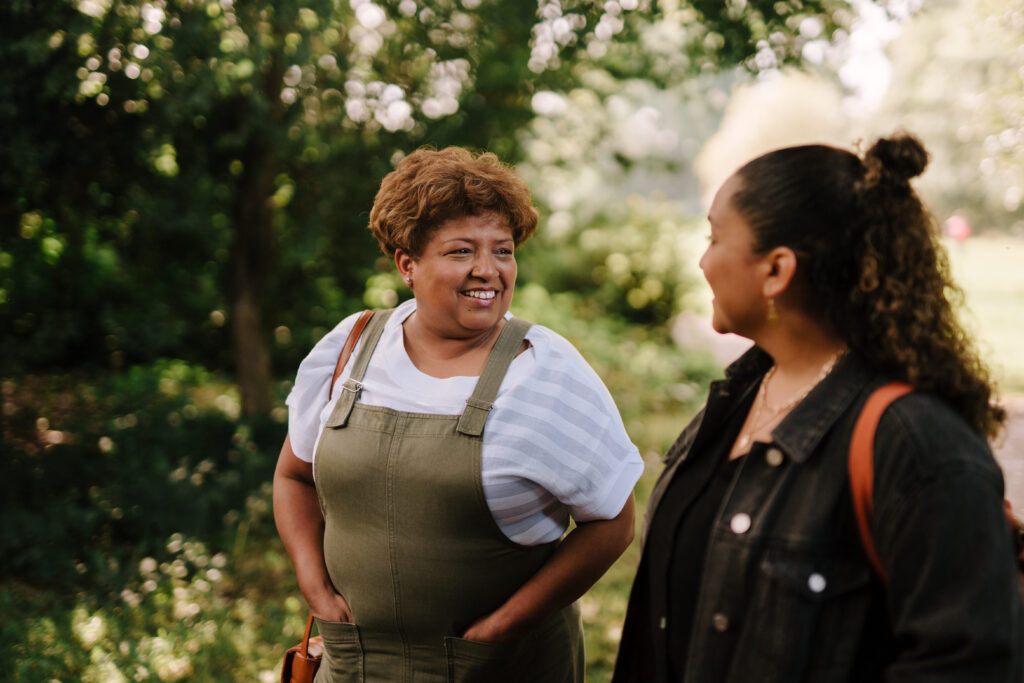Tessa’s story
I have a rare disease called hypopituitarism. This means that I don’t make many of the hormones I need.
Children don’t really think much about hormones but it turns out they keep everyone alive. I have to take replacements every day to keep me alive.
My life changed completely when I was 9, when I was diagnosed with a very rare brain tumour known as a craniopharyngioma. I had been feeling weak and ill for ages and nobody knew what was wrong with me. The tumour squashed my pituitary gland, which is only the size of a pea.
Over the next year I had two brain surgeries and proton beam therapy (PTB), which is a special type of radiotherapy.
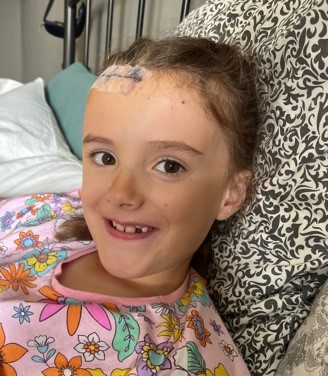
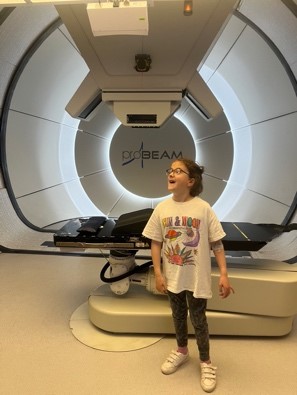
It was a strange year! At times I felt confused and helpless but it might surprise you to know also I enjoyed my time having PBT. I lived with my parents in London for 6 weeks and luckily I felt well, met some amazing people and went to some amazing places. Later, I did get some side effects, including fatigue, but I got back to school.
Now, instead of being hidden inside my body my hormones come in pills and injections. There are not many people with this condition in the UK. I have a small gang of friends who I met online – I’m 10 and they are both 8 and they are the only kids in my world who understand what life is like.
I’m at school with my friends and love drama and netball. I want to spread awareness of rare diseases in children to stop stigma and make schools and life better and safer for children. Now my treatment has ended I want to spread awareness to all young people about rare conditions and I would love your help! I would like to work with The Pituitary Foundation to link more children like me together.
I’ve learned to persevere and never stop trying and the multi-school council has been a part of it. The multi-school council is a huge school council for young children with SEND (Special Educational Needs and Disabilities), ADHD, autism and other additional needs and health challenges. They have really encouraged me throughout my treatment. I represent the needs of children with complex medical conditions.
My top tips for managing complex health conditions include:
- Rest regularly
- Be kind to your body
- Creativity is key!
- Love
- Family & friends
- Don’t worry!
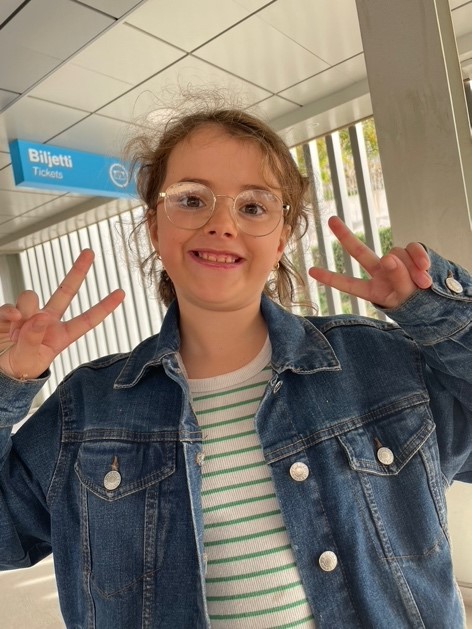
My dream for the future is to become a politician and work in the government. I may want to also become an actor as I like drama and have always loved the stage. Another career possibility I am considering is an author because I love writing stories and have a brilliant imagination.
We want to say a huge thank you to Tessa and her mum and dad, Emily and Mike, for sharing her story with us. We also want to thank everyone who has shared their personal stories with us throughout February, in celebration of Rare Disease Day.

Heading off to secondary school
For Pituitary Awareness Month 2025, we caught up with Tessa who has recently started secondary school! Starting secondary school is a big change for any young person, so doing this with a long-term health condition is even more of a challenge. Tessa had some great tips to share for anyone else like her.
Now that you’re starting secondary school, what are you most excited for with this change?
I am excited to have more independence in secondary school and to be able to make new friends. Also learning different subjects such as chemistry, biology and languages. It’s a big change and so far I am very much enjoying it.
Have you spoke to people at school about your pituitary conditions? Do you think it’s helpful for your friends and classmates to know about this, or do you prefer to not share too much?
So far in school, I have not gone into much detail about my condition but when people ask, but I will tell them in the simplest way possible. I am not too keen on making my friends and classmates aware of my condition as I like to be seen for me and not somebody who has a medical condition.
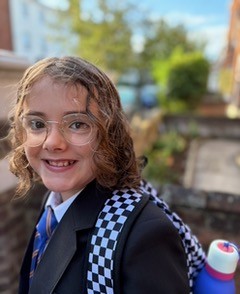
What tips would you give to someone your age who has a pituitary condition and is starting secondary school?
My tips would be: make sure all the teachers are aware of your needs in and out of class e.g asking to be put at the front of class, being given passes for certain things. Starting secondary school can be tiring and it’s important for you to take regular breaks if that’s during school time or after school.
Are you a young person looking for support?
If you’re a young person affected by a pituitary condition, we’re here to support you. We have a number of information resources available in our shop that provide information and support for young people, or the parents of young people, affected by a pituitary condition. Our young person’s support group is also a great place to meet other people sharing your experiences.








